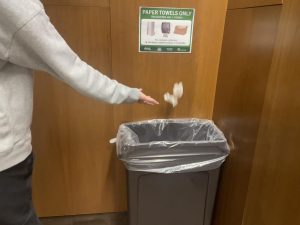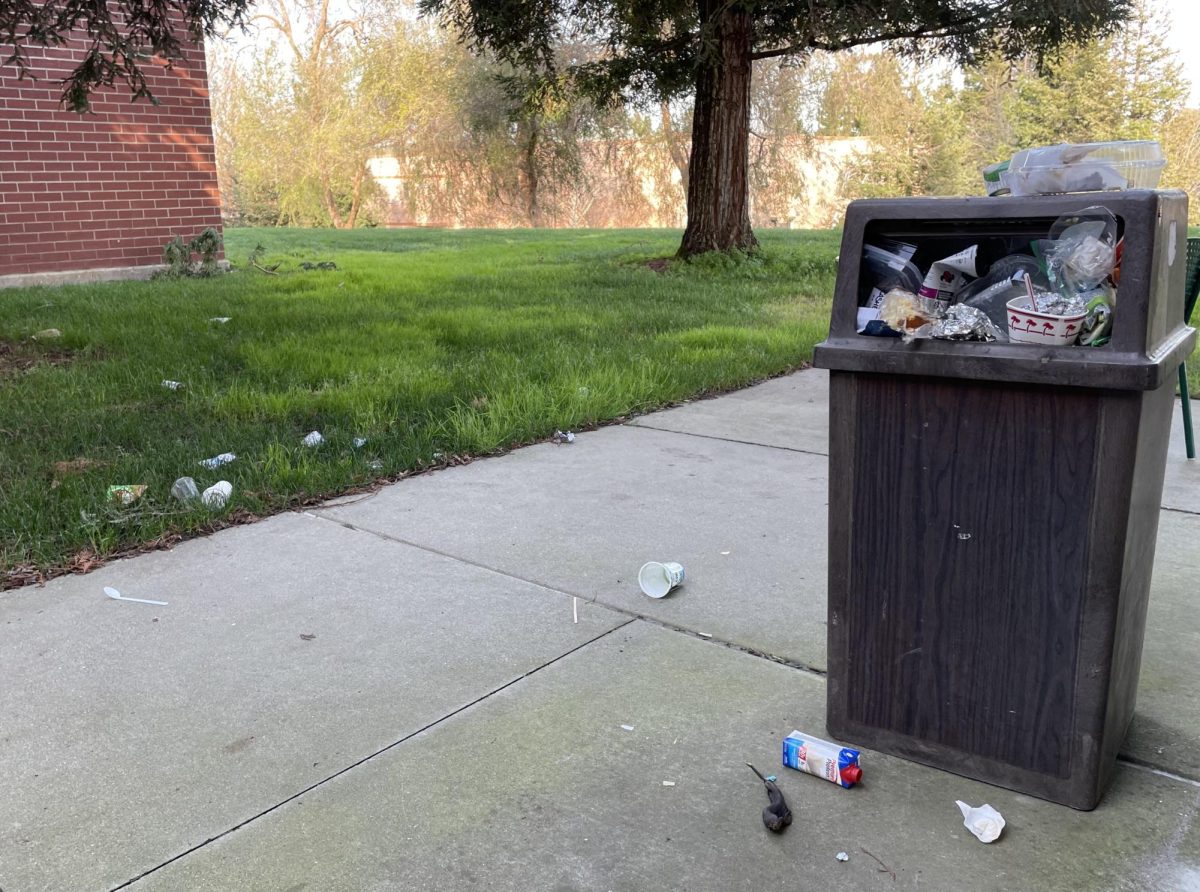Over the years, Diablo Valley College students and faculty have had trouble sorting their waste properly. The district and state chancellor’s office recently introduced sustainability goals to help reduce the amount of trash being sent to landfill. Now, efforts by the DVC sustainability committee, and in particular its composting program, have breathed fresh life into the school’s mission to become a more ecologically friendly campus.
David Hagerty, who chairs the committee, said, “Recycling and composting would help improve the people’s relationship with the environment, and would reduce the cost of waste collection simply by diverting trash from the landfill.”
According to Hagerty, the school’s sustainability committee seeks to help the college reduce its negative impact on the environment through efforts such as creating more composting bins around campus and educating the college’s population on how to sort waste correctly.
“What’s most important is the model it sets,” said Hagerty.
“We all need to reduce the amount of waste we produce, particularly plastics and clothing, which are often thrown into landfill rather than recycled.”
The benefits of composting are extensive. Composting food scraps and utilizing recycling helps the environment by improving soil health, reducing greenhouse gas emissions, recycling nutrients, and mitigating the impact of droughts.
Hagerty and his team are now encouraging DVC students and faculty to actively participate in the new composting system. Reshaping people’s habits remains a struggle because of how often students throw away their garbage without looking to see whether what they’re throwing away could be recycled.
Now, he said, DVC is trying to change that.
“Much of the trash in the cafeteria is being thrown into the wrong bins,” Hagerty said. “Waste audits this term and last found that most of the food waste—all of which is compostable—is being thrown into landfill containers.”
“We ask all students to stop and sort their waste before disposing of it,” he added.
Starting this year, the sustainability committee has been working with the cafeteria and the culinary program to put its ideas into action on a larger scale. The program has added composting bins in the cafeteria throughout the front side for students and faculty, and in the back for kitchen workers.

Hagerty said he is also trying to help the culinary program find a sustainable way to store its food, which would cut down further on waste.
“I’ve been working with [the cafeteria manager] David Craib on finding containers for many of his foods,” said Hagerty, which could greatly reduce the amount of plastic waste in food services.
At the same time, he added, “better food storage will reduce waste collection costs, not to mention the amount of food scraps that get thrown in the landfill.”
To help students adjust to the new recycling system, DVC has employed a student intern to educate students on campus about how to properly sort their waste. According to Hagerty, the intern talks to students who are eating in the cafe, four days a week, about proper waste sorting.
Hagerty also recently added new signage to all the tables as an extra reminder that it’s important to throw waste where it belongs.
He added, “College is a great place to get informed and develop more sustainable habits.”







































































